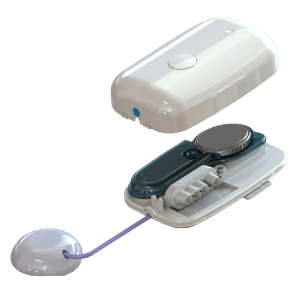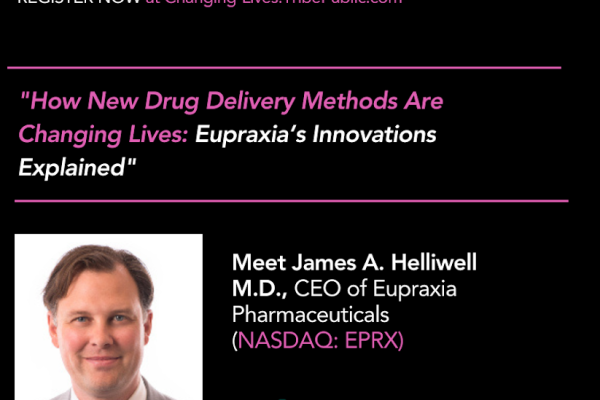
Viking Therapeutics (VKTX, $69.29, +37.63%), a biopharmaceutical company known for its innovative approach to metabolic disorders, is making waves in the obesity treatment landscape with its promising GLP-1 agonist VK2735. The company’s recent financial results and pipeline updates reveal significant progress in their obesity-focused clinical trials, showcasing impressive weight loss results and setting the stage for advanced development phases.
VK2735: Obesity Breakthrough?
Hold onto your love handles, folks! VK2735 is making waves in the battle against the bulge. This GLP-1 agonist superhero demonstrated its fat-fighting prowess in the Phase 2 VENTURE study, helping participants shed up to 15% of their body weight in just 13 weeks. That’s like losing a small child or a very large cat! With the FDA giving a nod of approval, VK2735 is now gearing up for its Phase 3 debut later this year.
But wait, there’s more! The oral tablet version of VK2735 is also flexing its weight loss muscles. In a mere 28 days of daily dosing, subjects reported an average weight loss of 5.3%. That’s right, you could potentially lose weight while binge-watching your favorite TV series! With these promising results, Viking is eagerly preparing to kick off a Phase 2 trial for the oral formulation in the fourth quarter of 2024. It seems Viking is determined to make “Viking bod” synonymous with “beach bod”!

However, There May Be More To The Story As Modular Medical’s MODD1 Pump Platform Seeks To Play A Significant Role In Controlling Obesity & Weight Loss Too…
The MODD1 pump platform (pictured below), developed by Modular Medical (NASDAQ: MODD), may play a significant role in controlling obesity and weight loss by offering a novel approach to delivering short-acting peptides as an alternative to long-acting GLP-1 therapies.


James (Jeb) Besser, CEO of Modular Medical (NASDAQ: MODD)
“A recent study published by Blue Health Intelligence using data from a national dataset of private insurers found that about half of all patients prescribed a GLP-1 drug for weight loss discontinued after the first 12 weeks, with approximately 30% discontinuing in the first four weeks,” commented Jeb Besser, Chief Executive Officer of Modular Medical. “These discontinuations appear to be due to a combination of tolerability, cost, and inconsistent efficacy. We suspect that short-acting peptides may mitigate many of these side effects and dosage swings by better modulating dosage, but these therapies have generally been abandoned as “too difficult to use” because they required multiple doses per day to be effective. We see the potential for such dosing regimes to be greatly simplified and even improved by the use of pump technology to provide both a basal dose and boluses to control hunger. Using Gubra’s gold-standard DIO mouse model, MODD will seek to determine whether an existing FDA approved, short-acting peptide delivered from a pump platform can provide a more personalized and more tolerable solution for patients who found long acting GLP-1 drugs too difficult to tolerate, while delivering comparable glycemic control and weight loss, specifically for people with type 2 diabetes and obesity.”
Here’s how the MODD1 pump could potentially contribute to weight management:
1. Personalized delivery of short-acting peptides:
The MODD1 pump platform is being explored as a delivery system for FDA-approved, short-acting peptides[2][3]. This approach could provide a more tailored and tolerable solution for patients who struggle with long-acting GLP-1 therapies, particularly those with type 2 diabetes and obesity[3].
2. Addressing challenges with long-acting GLP-1 therapies:
Many patients prescribed GLP-1 drugs for weight loss discontinue usage within the initial weeks due to issues such as tolerability, cost, and inconsistent efficacy[3]. The MODD1 pump system aims to mitigate these problems by offering better dosage control and potentially enhancing the effectiveness of short-acting peptides.
3. Simplified dosing regimens:
Short-acting peptides have generally been abandoned as “too difficult to use” because they required multiple doses per day to be effective. The MODD1 pump technology could greatly simplify these dosing regimens by providing both a basal dose and boluses to control hunger[4].
4. Potential for improved glycemic control and weight loss:
The proof-of-concept study with Gubra A/S aims to determine whether an existing FDA-approved, short-acting peptide delivered from the MODD1 pump platform can provide comparable glycemic control and weight loss to long-acting GLP-1 drugs, while being more tolerable for patients[4].
5. User-friendly design:
The MODD1 pump is designed to be simple to learn and use, with features such as basal and bolus insulin delivery and a large prefill-ready reservoir[4]. This user-friendly approach could make it easier for patients to adhere to their treatment regimens, potentially leading to better outcomes in weight management.
6. Continuous therapy:
Unlike traditional injections, the pump system could provide continuous delivery of the short-acting peptides, potentially offering more consistent therapeutic effects throughout the day.
7. Data tracking and monitoring:
The MODD1 platform includes features for sharing insulin management data with healthcare providers[6], which could be extended to tracking weight loss progress and adjusting treatment plans accordingly.
Research Continues
While the use of the MODD1 pump for obesity control is still in the research phase, this innovative approach could potentially offer a new tool in the fight against obesity, especially for those who have found long-acting GLP-1 therapies challenging to use or ineffective. The ongoing proof-of-concept study will provide more insights into the feasibility and effectiveness of this approach in controlling obesity and facilitating weight loss.
On July 15, Modular Medical, Inc. (NASDAQ:MODD), an insulin delivery technology company seeking to launch the next generation of user-friendly and affordable insulin pump technology, today announced a proof-of-concept study with Gubra A/S (“Gubra”) in a high-fat, diet-induced obese (“DIO”) mouse model to explore the potential future use of the MODD1 pump platform to assist patients who struggle with tolerability, inconsistent efficacy, and cost of long acting GLP-1 therapies.

James (Jeb) Besser, CEO of Modular Medical (NASDAQ: MODD)
“A recent study published by Blue Health Intelligence using data from a national dataset of private insurers found that about half of all patients prescribed a GLP-1 drug for weight loss discontinued after the first 12 weeks, with approximately 30% discontinuing in the first four weeks,” commented Jeb Besser, Chief Executive Officer of Modular Medical. “These discontinuations appear to be due to a combination of tolerability, cost, and inconsistent efficacy. We suspect that short-acting peptides may mitigate many of these side effects and dosage swings by better modulating dosage, but these therapies have generally been abandoned as “too difficult to use” because they required multiple doses per day to be effective. We see the potential for such dosing regimes to be greatly simplified and even improved by the use of pump technology to provide both a basal dose and boluses to control hunger. Using Gubra’s gold-standard DIO mouse model, MODD will seek to determine whether an existing FDA approved, short-acting peptide delivered from a pump platform can provide a more personalized and more tolerable solution for patients who found long acting GLP-1 drugs too difficult to tolerate, while delivering comparable glycemic control and weight loss, specifically for people with type 2 diabetes and obesity.”
MODD1 Insulin Pump Demonstration
Modular Medical is focused on the delivery of therapeutics using patented technology with greater simplicity, lower cost and a differentiated form factor.

Paul DiPerna, Chairman and President of Modular Medical
“While long acting GLP-1 injectables have shown great results in the management of metabolic disease, we believe this research has the potential to help patients who would otherwise lose out on realizing those important clinical benefits,” commented Paul DiPerna, Chairman and President of Modular Medical, website https://www.modular-medical.com. “Our simple to learn platform, basal and bolus features, and large prefill-ready reservoir make the MODD1 an ideal candidate for this potential application, once again furthering our mission of diabetes care for the rest of us.”
Paul leads the Modular Medical organization. He possesses 30 years of experience in the medical device industry as a technologist, business executive and founder of several successful startups. He has been deeply involved in Diabetes care for the past 20 years.
Paul’s early background includes key roles at Baxter Healthcare where he worked in cell separation product design, high volume manufacturing, business development, initial startups to evaluate technology within the spaces between divisions, corporate project management and technical diligence on acquisitions. Upon leaving Baxter, Paul founded, created the technology, and was CEO and board member for a diabetes delivery innovation that became Tandem Diabetes Care (TNDM, $450M IPO in 2013 and today is approx. $2.71B in market valuation). Paul also co-invented the Ivera Medical blood-borne infection control device technology and provided guidance through the company’s successful exit to 3M in 2015. During the transition, Paul assisted in production enhancements, refining product performance and intellectual property that led to demonstrated reductions in blood-borne infections and nurse compliance.
In 2015, Paul founded what is now Modular Medical, an initially self-funded diabetes delivery technology company that merged into a financed public shell in 2017. At Modular Medical, Paul’s focus is on the use of disruptive micro pumping technology and a simplified user experience for those less able and motivated to manage diabetes using current technologies.
Paul has served on several boards to help guide many early stage startups. Paul received a Bachelor of Science in Mechanical Engineering from the University of Massachusetts and a Master’s in Engineering Management from Northeastern University. Mr. DiPerna holds over 70 patents, primarily in blood separation technologies, micro pumping and systems for the care of diabetes.
[1] https://www.diabettech.com/insulin-pump/the-modular-medical-modd1-insulin-pump-what-do-we-know/
[2] https://www.accesswire.com/888097/modular-medical-announces-proof-of-concept-study-for-personalized-metabolic-therapy-utilizing-the-modd1-platform
[3] https://finance.yahoo.com/news/modular-medical-announces-proof-concept-120000997.html
[4] https://www.biospace.com/modular-medical-announces-proof-of-concept-study-for-personalized-metabolic-therapy-utilizing-the-modd1-platform
[5] https://www.beckershospitalreview.com/pharmacy/eli-lilly-weight-loss-drug-platform-draws-experts-concern.html
[6] https://www.modular-medical.com/modd1
[7] https://www.modular-medical.com/providers
[8] https://www.mdpi.com/1999-4923/16/7/944
[9] https://www.wallstreet-online.de/nachricht/18270618-modular-medical-announces-proof-of-concept-study-for-personalized-metabolic-therapy-utilizing-the-modd1-platform
[10] https://www.nbcnews.com/health/health-news/fda-approves-weight-loss-stomach-pump-aspireassist-combat-obesity-n592141















